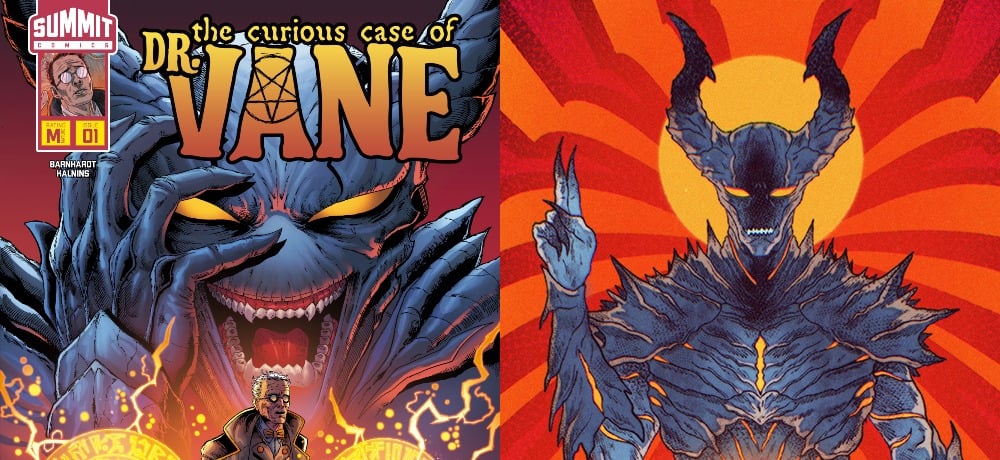





Clifton Hill is a Canadian thriller set in the backdrop of one of the country’s most famous landmarks: Niagara Falls. But even a city this beautiful can’t escape the horror of murder and corruption.
Family is a key theme that drives Albert Shin’s film. But Clifton Hill is not family fun like the entertainment tourist draw it’s named after. Rather, it introduces the viewer to a tight-knit family that is no more. Families are complex and can be broken by many things. In this film’s case, it’s Abby’s compulsion to lie that causes her estrangement from her family.
Played by Tuppence Middleton, the trauma that triggers Abby’s pathological lying is revealed straight away in the film’s introductory scenes. Accompanied by one of the most unique scores of the year by Alex Sowinski and Leland Whitty, Abby witnesses the kidnapping of a one-eyed boy while on a fishing trip with her family. Fast forward to the present day, having to return to Niagara Falls due to her mother’s death, the trauma Abby suffered is still there. While chatting with a guy in a bar, she describes the Falls as just a “bunch of water falling over some rocks,” and says that they should just dry it up. She no longer sees the beauty in it, because she knows of the horrors that lie at the end of its waters.
And she’s not the only one. David Cronenberg makes an appearance as Walter, the city’s historian who’s constantly plugging his podcast where he likes to dive into conspiracy theories. Not only that, he comes from a family who has a penchant for fishing up corpses that come down to the lake from the falls—the same lake where Abby witnessed the kidnapping 20 years prior. This awkward old man becomes vital in her investigation, as she finds old photos from the trip and everything starts coming back to her. She wants answers and goes in search of them, but the incompetence of the local police leads her to conduct her own investigation.
Most of the film revolves around this tale of intrigue, of the one-eyed boy who disappeared all those years ago. It’s a film that keeps you guessing, as there are many elements at play that drive Clifton Hill’s conflict: Abby’s distrustful sister (played by Mindhunter’s Hannah Gross) who’s hesitant to believe her stories, the local lore of a group of performers and their murdered son, and the violence and secrecy of the town’s most wealthy. Shin lays out all of these narrative points as best he can, but some questions still linger in the end.
Catherine Lutes’ cinematography pays homage to the city with all its scenic shots of its landscape and highlights some unique Niagara hot spots (there’s an alien-themed restaurant called Flying Saucer!!!). And it’s no surprise with Cronenberg present that Shin takes influence from Videodrome with the use of old-style video clips and VHS tapes. One videotape, in particular, becomes an essential part of Abby’s investigation. She’s obsessed with the secrets it holds, and as a result, it messes with her already fragile psyche as she dreams of getting sucked into its end-of-the-century grunge, just like Max Renn gets sucked into his TV.
Clifton Hill is a story wrapped in the ambiguity of truths and the danger of lies, told through the eyes of Abby, one of the most interesting and complex characters of the year. Middleton’s performance is compelling, as Abby struggles to fight her mental illness and overcome her trauma. My memory fails to spring to mind any other portrayal of pathological lying through a sympathetic lens. While not perfect, it’s a Canadian work that’s not to be missed, with a twist ending that’s both cathartic and satisfying.
Movie Score: 3.5/5